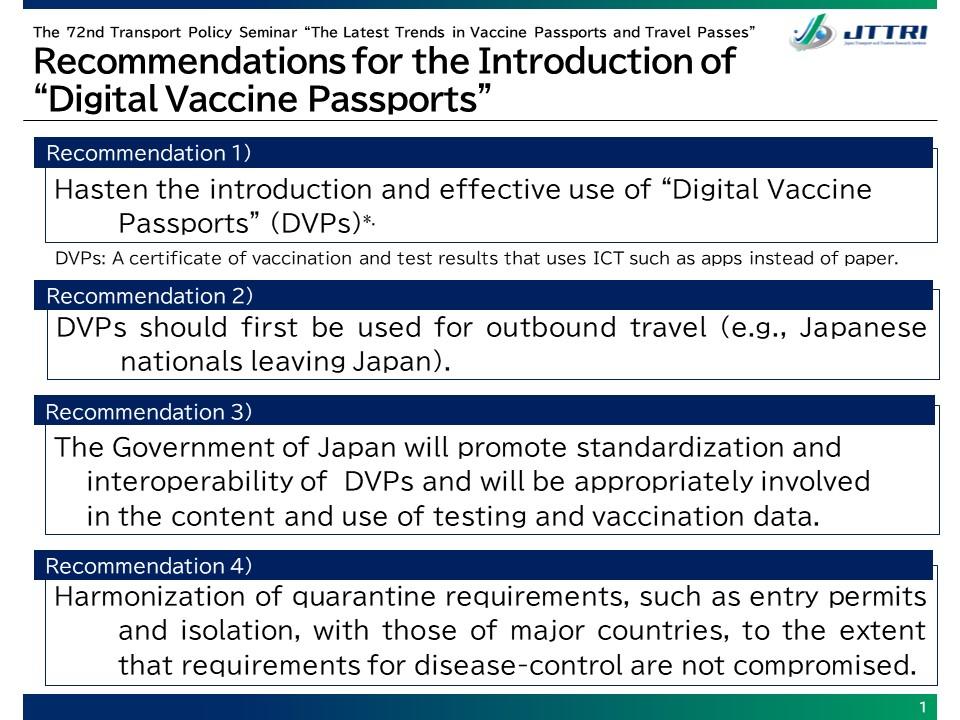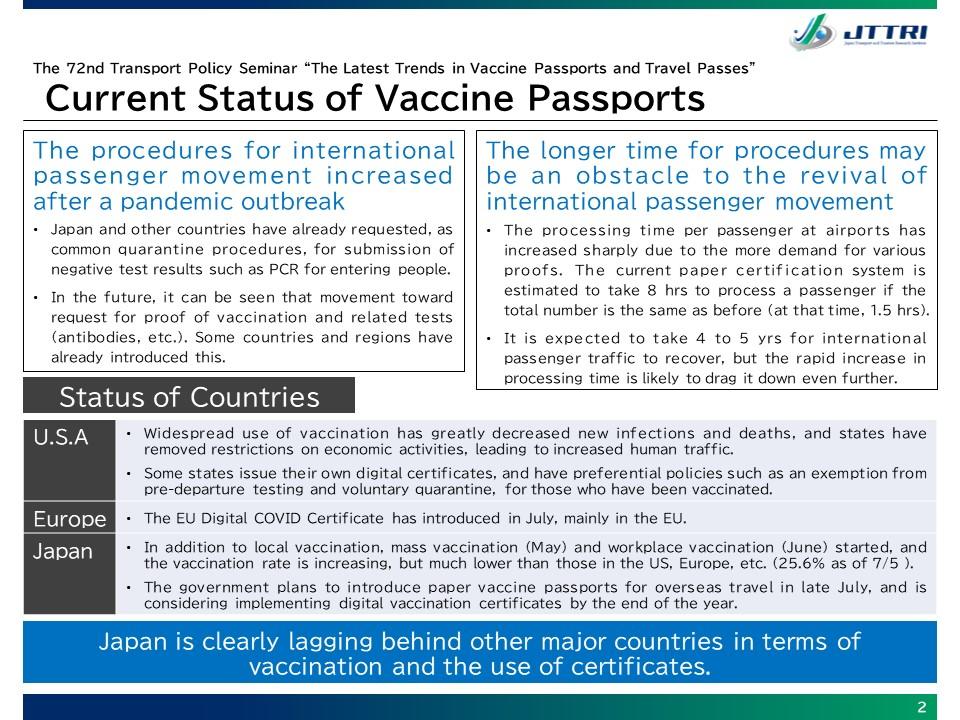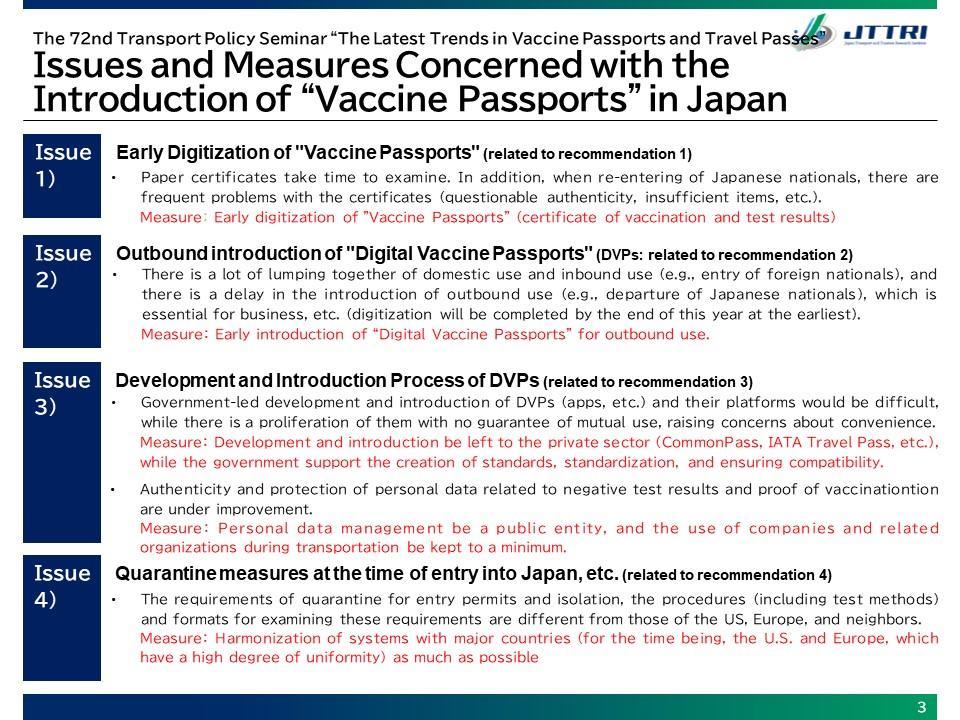Recommendations for the Introduction of "Digital Vaccine Passports" (DVPs)
Summary of the 72nd Transport Policy Seminar "The Latest Trends in Vaccine Passports and Travel Passes"
July 12, 2021
Japan Transport and Tourism Research Institute
In response to the global spread of COVID-19 infections, socioeconomic activities have had to be restricted in order to control the spread of the infection. In particular, such restrictions have gravely affected international human traffic.
Although international human traffic has resumed with conditions such as requiring disease-control measures (e.g., isolation), it is already common for countries, including Japan, to require submission of PCR and other test-negative certificates for people entering the country as quarantine procedures. In addition, some countries and regions have introduced vaccination certificates and require submission of related test certificates (e.g., antibodies).
On the other hand, some states in the U.S. have already issued their own digital certificates for vaccination, and in Europe, the EU Digital COVID Certificate has just been introduced in July, mainly within the EU.
Under these circumstances, the Government of Japan has decided to start issuing paper vaccination certificates to local governments from the end of July, in order to contribute to the use of vaccines certificates in international human traffic, and is considering to start electronic issuance of such certificates by the end of this year.
However, in the case of paper certificates, in addition to the prevention of counterfeiting, we need to consider such issues as the complexity of using the procedure. For example, the average processing time at the departure/arrival airport was about 1.5 hours before the outbreak of COVID-19 pandemic, but some estimate expects to take 8 hours for the process of the paper certification if the number of passengers has come back to the same as before. It is expected that it will take 4 to 5 years for international human traffic to fully recover, but the rapid increase in processing time may drag it down further.
The Japan Transport and Tourism Research Institute (JTTRI) just held the 72nd Transport Policy Seminar on June 25 this year, entitled "The Latest Trends in Vaccine Passports and Travel Passes," where the views of experts had been shared. Based on this result of the seminar, we recommend the following four points for the introduction of "Digital Vaccine Passports"(DVPs), certifying for vaccinations and test results, using ICT such as apps instead of paper.
* All of the details of this recommendations do not necessarily correspond to the views of the individual speakers who participated in this seminar.
1. Outline of Recommendations



2. Recommendations for the Introduction of "Digital Vaccine Passports" (DVPs)
| Recommendation 1) Hasten the introduction and effective use of "Digital Vaccine Passports (DVPs). |
Therefore, in order to solve these issues by digitizing the certificate verification process, "Digital Vaccine Passports" (DVPs) should be introduced, a certificate of vaccination and test results, etc., using ICT such as applications, instead of paper.
| Recommendation 2) DVPs should first be used for outbound travel (e.g., for Japanese nationals leaving Japan). |
Hence, DVPs should be quickly introduced to outbound, apart from its domestic or inbound use.
| Recommendation 3) The Government of Japan should encourage standardization and ensure compatibility of DVPs and be appropriately involved in the content and use of test and vaccination data. |
In addition, the authenticity and protection of personal data related to negative test results, vaccination certificates, etc. is still under improvement. For example, personal data should be stored in a public database, and upon boarding, with the consent of the individual, it should be queried by the airline company system to confirm its authenticity, etc. Personal data should be strictly managed by public entities, and the use of such data by companies and related organizations during transportation should be kept to a minimum.
| Recommendation 4) Harmonization of quarantine requirements, such as entry permits and isolation, with those of major countries, to the extent that requirements for disease-control are not compromised. |


